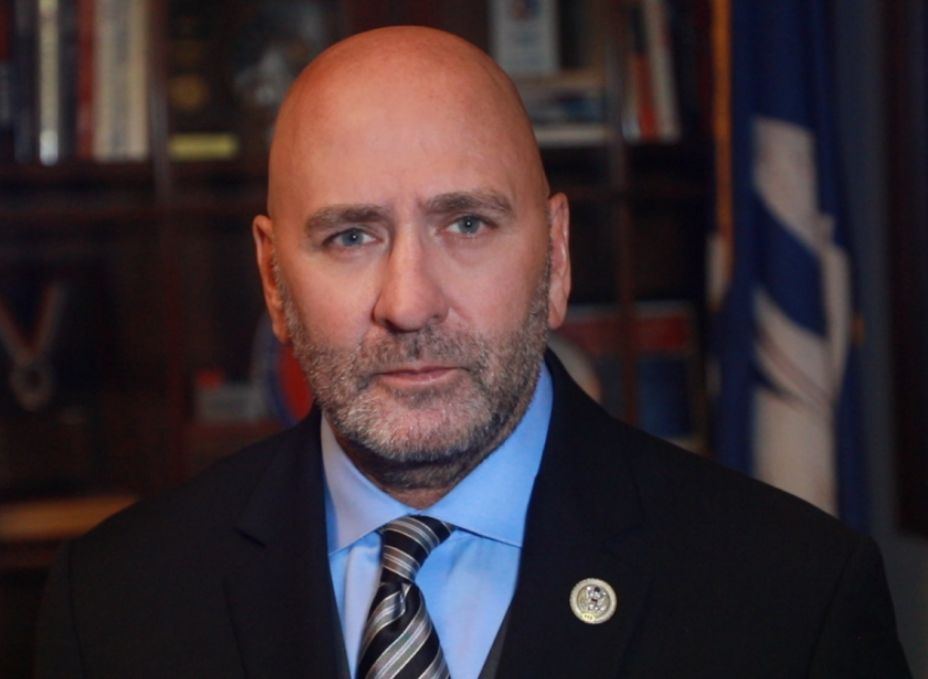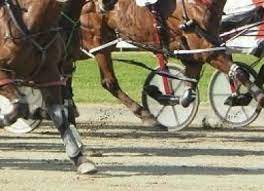Washington, DC — Tuesday (Sept. 26), harness racing industry groups representing over tens of thousands of horsemen joined Congressman Clay Higgins (LA-03) to introduce the Racehorse Health and Safety Act (RHSA) to bring safety to the industry. The bill is endorsed by the National Horsemen’s Benevolent & Protective Association (HBPA), the United States Trotting Association (USTA), the North American Association of Racetrack Veterinarians (NAARV), and others. The RHSA would establish an interstate compact to develop nationwide rules governing scientific medication control and racetrack safety for horseracing, replacing the Horseracing Integrity and Safety Act (HISA), which is failing to bring safety to the industry.
“I grew up on a horse ranch. I love horses, and the horse racing community is special to me. It’s part of who I am. While the federal government may have had good intentions in passing HISA, in practice it ended up obstructing best practices in the horse business. I will not sit by and allow horses to be harmed while government crushes the families that have built their lives around the horse racing industry,” stated Congressman Clay Higgins.

The bill establishes the Racehorse Health and Safety Organization (RHSO), with a Board of Directors appointed by the state racing commissions. Five board members will be appointed by the racing commissions in the states with the most racing days, and four members will be appointed by racing commissions in the remaining states. The RHSO Board will establish three Scientific Medication Control Committees, one for each racing breed: Thoroughbreds, Standardbreds, and Quarter Horses. Committee members will be selected by industry associations and the Board. The RHSO Board will also establish one Racetrack Safety Committee comprised of board appointed members and industry appointed members that will recommend breed specific rules to the board. The Board will have the final say on all rules adopted, but it must justify its decisions with scientific evidence. Further, the RHSO will be granted the power to investigate rule violations, but the state racing commission of each participating state will retain enforcement power unless it requests the RHSO to assist with enforcement. Finally, the RHSO will be funded through annual fees from the participating state racing commissions, which will be specific to each breed.
States will have two years to decide whether to participate in the compact, and only participating states will be allowed to export simulcast signals for interstate, offsite betting. The RHSA also repeals HISA, which was passed in 2020 to bring safety to the horseracing industry but has proven to be ineffective.
After HISA was fully implemented this May, 12 horses died in six weeks at Churchill Downs Racetrack, home of the Kentucky Derby. Even though HISA admitted the racetrack was in “full compliance” with its racetrack safety rules, Churchill Downs was shut down, and races were moved to another track. Under HISA’s watch other racing fatalities occurred at Triple Crown racetracks and at prominent tracks in Maryland and New York. Despite spending $66.5 million this year, the HISA Authority recently failed to identify the cause of the problem.
As the HISA Authority concluded, “Horse racing has reached an ‘all-hands-on-deck’ moment requiring more than ever a truly unified effort for the horses. All stakeholder groups must participate in bringing the appropriate recommendations to fruition and being part of the solution.” The RHSA is that solution.
In addition to its implementation problems, HISA also has been riddled with legal setbacks since its passage in 2020. It was ruled unconstitutional last fall by the Fifth Circuit Court of Appeals in a lawsuit brought by the National HBPA and is back before the court for a hearing next month after a one-sentence tweak to the bill.
Doug Daniels, DVM and president of the National HBPA, praised the RHSA: “The RHSA is a law that works from the ground up and brings all horseracing industry entities to the table in a collaborative, consensus-driven approach. It’s a sensible piece of legislation that will cost horsemen much less than HISA because it will utilize resources already existing in the states. And it will be constitutional and democratic, allowing everyone in the industry to have a voice in the rulemaking process.” Dr. Daniels continued, “HISA has proven to be flawed in implementation time and time again, and it’s time to pass legislation that has its regulations grounded in veterinary science. The Racehorse Health and Safety Act is just that.”
“This bill is not based on optics but on sound veterinary science, accountability, and transparency,” stated Russell Williams, president of the USTA. “The RHSO must ensure that all horseracing rules are based on generally accepted scientific principles and methods, and to the extent possible, on peer-reviewed scientific data and studies. This will keep the health of the horse at the forefront of everything it does and simultaneously provide proper justification for the rules to the industry.”
“The North American Association of Racetrack Veterinarians (NAARV) is supporting the Racehorse Health and Safety Act because the Horseracing Integrity and Safety Authority is a flawed institution which not only is harmful to the horse racing industry but has serious implications as a precedent to challenge our basic Constitutional liberties and protections,” said Donald Smith, president of the NAARV Board of Directors.
“Lo and behold, despite all the grandstanding and potentially good intentions of those who lobbied for HISA, its implementation has been an absolute failure by every metric,” said Attorney General Jeff Landry (LA). “In pushing a one-size-fits-all program that effectively grants control of an entire industry to a handful of elites within a private entity, the federal government’s plan has collapsed from underneath it — at the expense of the American racehorse and those who work the hardest within this industry. That is why it is time to repeal and replace HISA with something designed by horsemen for horsemen.”
The RHSA is endorsed by:
National Horsemen Benevolent and Protective Association (National HBPA)
United States Trotting Association (USTA)
North American Association of Racetrack Veterinarians (NAARV)
Louisiana Attorney General Jeff Landry
Alabama HBPA
Arizona HBPA
Arkansas HBPA
Arkansas Court of Appeals retired Judge Bill Walmsley
Charles Town HBPA
Colorado HBPA
Delaware Standardbred Owners Association
Finger Lakes HBPA
Harness Horse Association of Central New York
Illinois HBPA
Indiana HBPA
Iowa HBPA
Kentucky HBPA
Louisiana HBPA
Minnesota Harness Racing, Inc.
Minnesota HBPA
Monticello Harness Horsemen’s Association, Inc.
Nebraska HBPA
New Mexico Horsemen’s Association
Oklahoma HBPA
Oregon HBPA
Pennsylvania Harness Horsemen’s Association
Pennsylvania HBPA
Standardbred Owners Association of New York
Tampa Bay HBPA
Virginia HBPA
Washington HBPA
Western New York Harness Horsemen’s Association
For further information, contact Brad Bishop at Brad@ingramgroup.com.
From The Ingram Group

 USA
USA Canada
Canada Australia
Australia New Zealand
New Zealand Europe
Europe UK / IRE
UK / IRE



